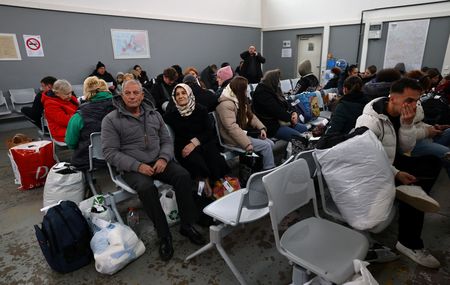BERLIN (Reuters) – An higher proportion of foreigners in Germany does not lead to a higher crime rate, a research institute said on Tuesday, five days ahead of an election in which violent attacks linked to migrants have pushed security to the top of the agenda.
In an analysis of police statistics from 2018 to 2023, the Ifo institute found “no correlation between an increasing proportion of foreigners in a district and the local crime rate”, researcher Jean-Victor Alipour said, adding that this also applied to refugees.
Immigration and security issues have dominated campaigning ahead of the February 23 election, especially after a series of violent incidents in recent weeks, with polls showing the centre-right CDU/CSU bloc leading followed by the far right.
Last week, an Afghan immigrant ploughed his car into a crowd in Munich, injuring over 30 people, two of whom later died. Prosecutors suspect he was motivated by Islamist ideology.
In their analysis, Ifo took into account that foreigners appear in crime statistics more frequently than would correspond to their share of the population. The reason for this is that migrants are more likely to move to urban centres with a structurally higher crime rate, even among Germans, the institute said.
(Reporting by Holger Hansen, Writing by Friederike Heine, Editing by Rachel More)








